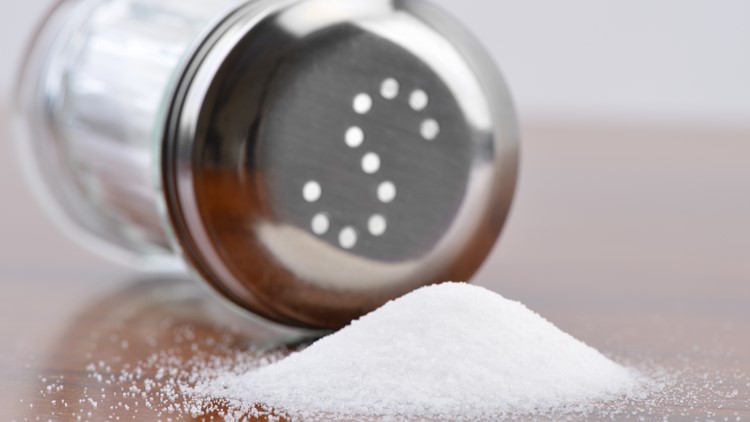GREENSBORO, N.C. — There's no question we love salty foods like fries, deli meats and potato chips, but our plates are so full of sodium that it has caught the attention of The Food and Drug Administration.
The FDA announced updated guidance on Wednesday including their efforts to ask the food industry to voluntarily reduce the amount of salt in products amid a "growing epidemic of preventable, diet-related conditions."
According to the FDA, Americans on average consume nearly 3,400 milligrams of sodium a day.
The FDA recommends adults 14 and older to limit their sodium intake to only 2,300 mg a day. That's about 2 1/2 teaspoons of salt.
These numbers are part of the reason they have a goal to decrease the nation's average sodium consumption by 12% over the next two and a half years.
"Most of our intake of sodium comes from our packaged processed foods and foods we eat out at restaurants. Up to 75% of our daily intake comes from those foods," Alice Smith, registered dietitian, said.
Smith told WFMY diets with high sodium intake can lead to health issues like high blood pressure, stroke cancer, obesity and Alzheimer's Disease.
She also said that foods that are high in sodium are also high in sugar, inflammatory oils, unhealthy fats, additives and preservatives that really impact our health.
As the FDA pushes for change, Smith wants to remind people you can start making a change now at home.
"What you do at home is important. So really filling your grocery cart, your plate with those with those real whole foods. The fewer ingredients, the better and knowing what are those ingredients, what is in your food, what it is you're consuming," Smith said.
How do you do that? Grab the foods that don't have labels like fruits, vegetables and grains.
If you really love salt, Smith suggested trying Himalayan salt or season with spices like turmeric which she said is a great anti-inflammatory.
If you need any help with your diet check out aliceapproved.com.



